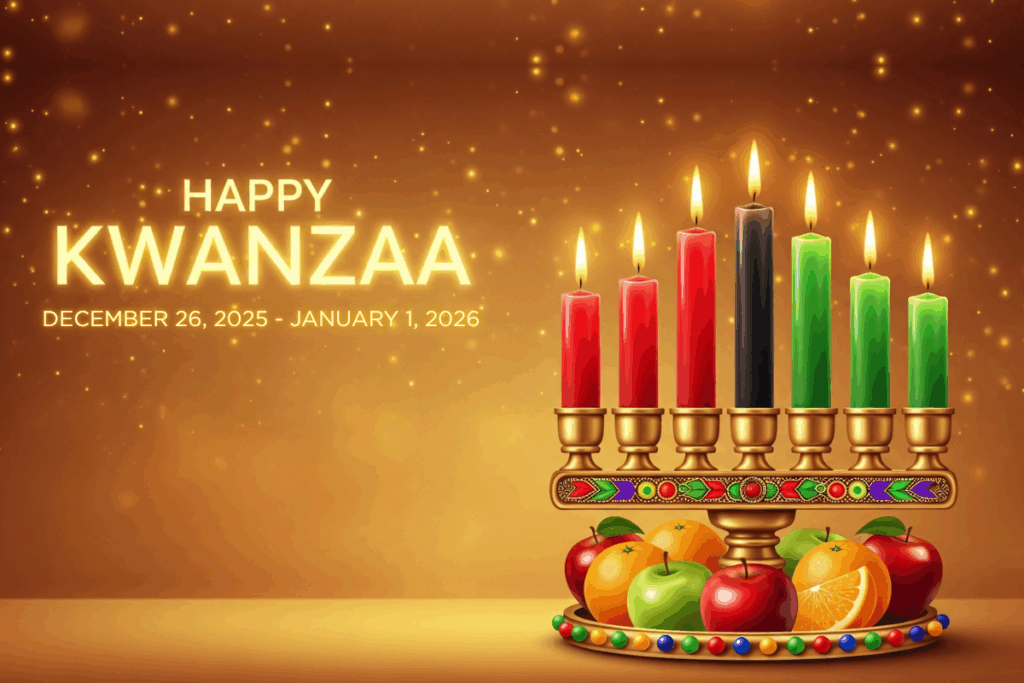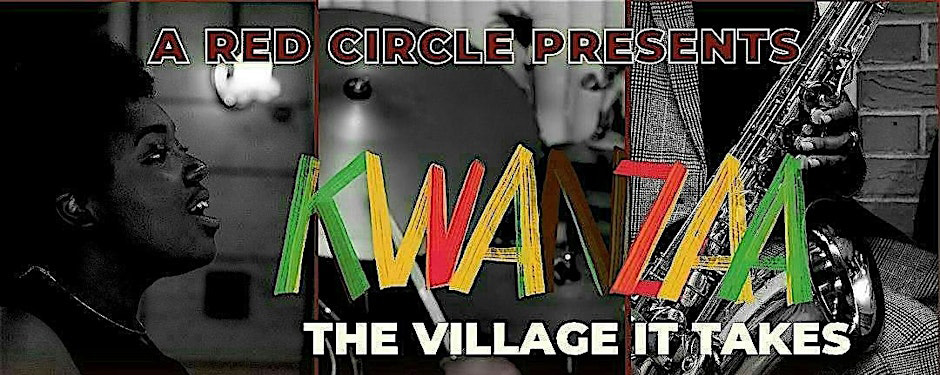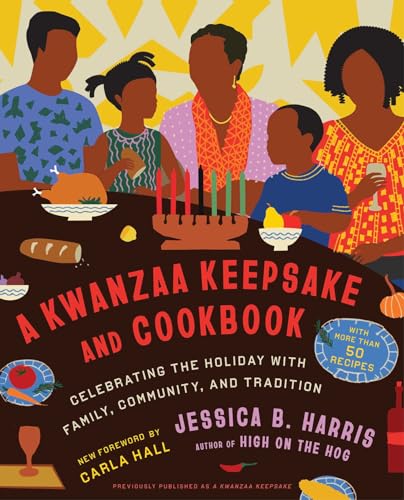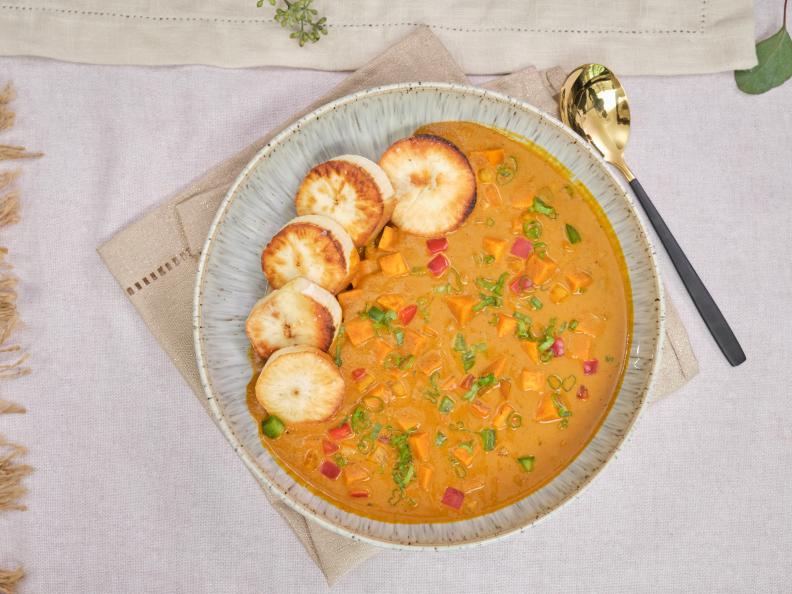Kwanzaa is a secular festival observed from December 26th through January 1st as part of a celebration of African American cultural heritage and traditional values.

Historical background and significance
The word Kwanzaa comes from the Swahili phrase, “matunda ya kwanza” or first fruits, referring to First fruits or Harvest festivals that are found throughout Africa. Kwanzaa was created in 1966 by Maulana Ron Karenga to reaffirm and restore African heritage and culture.
Kwanzaa is observed for seven days, and there is a different value for each day. On each night during the celebration of Kwanzaa, a candle is lit to observe the nguzo saba, the seven principles of Kwanzaa.
The 7 principles of Kwanzaa are:
- Umoja (unity)
- Kujichagulia (self-determination)
- Ujima (collective work and responsibility)
- Ujamaa (cooperative economics)
- Nia (purpose)
- Kuumba (creativity)
- Imani (faith)
The candles include one black, three red, and three green. The color black represents “the people”. The color red represents the blood that was shed during the struggle for liberation. The color green represents the future of black liberation.
Many people assume that the celebration of Kwanzaa is closed to non-black people because of its roots. However, everyone is welcome to celebrate this holiday, just as other cultures often participate in the celebrations like Cinco de Mayo and Chinese New Year.
Happy Kwanzaa Everyone!

Local Kwanzaa Events
- Kwanzaa – Festival of the First Fruits at the Missouri Botanical Garden on December 27, 2025 from 9:00 am – 1:00 pm A Kwanzaa ceremony highlights a day of storytelling, craft and jewelry displays, and authentic African drumming and musical performances celebrating this contemporary African-American holiday centered around the feast table of the harvest.
- A Red Circle Presents “Kwanzaa: The Village It Takes 2025” Community Celebration on December 20, 2025. Starting at 3 pm at join St. Stephen’s and the Vine Episcopal Church for a vendor fair, dinner, and stage show.
- 2025 Kwanzaa Celebration at the St. Louis Art Museum on December 26 from 10:00 am – 8 pm. Enjoy a day of culture, performance, and tradition during one of the region’s biggest Kwanzaa celebrations. Celebrated at the Museum for more than 20 years, the free, annual Kwanzaa Celebration is presented in partnership with Delta Sigma Theta Sorority, Inc., Saint Louis Metropolitan Alumnae Chapter.
Photo Source: A Red Circle
Resources

Kwanzaa Reading
Photo (A Kwanzaa Keepsake and Cookbook: Celebrating the Holiday with Family, Community, and Tradition) Source: Good Reads

